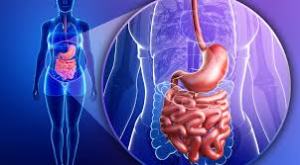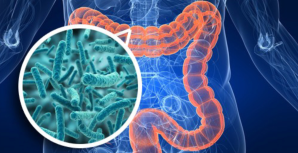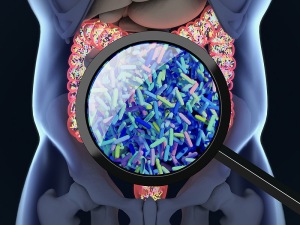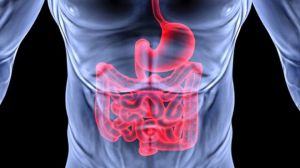 Improvements in the activity of white blood cells in elderly adults, a group of individuals with a higher chance of infections, may occur with daily supplementation of the Probiotic strain containing Bifidobacterium Lactis.
Improvements in the activity of white blood cells in elderly adults, a group of individuals with a higher chance of infections, may occur with daily supplementation of the Probiotic strain containing Bifidobacterium Lactis.
37 healthy older adults participated in this double-blinded placebo-controlled randomized cross-over study. Participants were randomly assigned to receive a Prebiotic (GOS), a Probiotic containing Bifidobacterium Lactis, a combination of a prebiotic (GOS) and probiotic containing Bifidobacterium Lactis or a placebo. The supplements were taken for 21 days with a 28 day wash-out period. Participants supplementing with the Probiotic containing the Bifidobacterium Lactis strain showed higher phagocytic activity of granulocytes and monocytes when compared to the group supplementing with the placebo. Phagocytosis is the process in which immune cells basically eat bacteria or infected cells and is one of the ways that help the body resist infections. This study showed that the Probiotic strain Bifidobacterium Lactis may help elderly individuals increase the activity of these phagocytic cells.
Researchers concluded that supplementing with the Bifidobacterium Lactis strain of friendly bacteria may provide long term benefits to the health of elderly individuals by not aiding to the inflammation-associated metabolic disorders. Additionally they believe that this strain of friendly bacteria enhances the innate immune defense against infections.
Larger studies are needed to confirm these findings.
ASK US. WE KNOW. NOBODY KNOWS NUTRITION LIKE WE DO.
http://naturesvitaminsonline.com

 Gut dysbiosis (when the bacteria in the gut are out of balance) has commonly been associated with aging and the afflictions of aging. Worldwide the implications of aging populations have become a major issue.
Gut dysbiosis (when the bacteria in the gut are out of balance) has commonly been associated with aging and the afflictions of aging. Worldwide the implications of aging populations have become a major issue. A new population study found daily supplementation with a prebiotic and probiotic supplement can reduce inflammation and increase antioxidant capacity in patients with NAFLD (non-alcoholic fatty liver disease). Oxidative stress and inflammation are associated with NAFLD. Prior research has shown prebiotics and probiotics having anti-inflammatory and anti-oxidative properties.
75 individuals with NAFLD participated in this study. Participants were randomized into four groups: group one received a probiotic supplement containing 20 milllion CFUs (colony-forming units) of Lactobacillus acidophilus (LA) and Bifidobacterium longum (BL) daily, group two received prebiobics (10g of daily inulin), group three received the pre and probiotic supplements daily and the last group received a placebo. The study period lasted 3 months. Prior to and after the study period participant’s levels of inflammation, oxidatives and anti-oxidatives, and anthropometic indexes (Anthropometric measurements are used to assess the size, shape and composition of the human body) were taken.
Participants who supplemented with prebiotics and probiotics or a combination of the two experienced a reduction in BMI, smaller waist and hip circumferences, weight loss, reduced tumor necrosis factor-a and increased serum levels of total antioxidant capacity. Additionally participants who supplemented with both the prebiotics and probiotics saw reductions in high sensitive C-reactive protein (hs-CRP) compared to all the other groups of participants.
Further studies using increased numbers of participants and a longer-term follow up are needed to better support the conclusions reached in this study.
ASK US. WE KNOW. NOBODY KNOWS NUTRITION LIKE WE DO. NOBODY!
A new population study found daily supplementation with a prebiotic and probiotic supplement can reduce inflammation and increase antioxidant capacity in patients with NAFLD (non-alcoholic fatty liver disease). Oxidative stress and inflammation are associated with NAFLD. Prior research has shown prebiotics and probiotics having anti-inflammatory and anti-oxidative properties.
75 individuals with NAFLD participated in this study. Participants were randomized into four groups: group one received a probiotic supplement containing 20 milllion CFUs (colony-forming units) of Lactobacillus acidophilus (LA) and Bifidobacterium longum (BL) daily, group two received prebiobics (10g of daily inulin), group three received the pre and probiotic supplements daily and the last group received a placebo. The study period lasted 3 months. Prior to and after the study period participant’s levels of inflammation, oxidatives and anti-oxidatives, and anthropometic indexes (Anthropometric measurements are used to assess the size, shape and composition of the human body) were taken.
Participants who supplemented with prebiotics and probiotics or a combination of the two experienced a reduction in BMI, smaller waist and hip circumferences, weight loss, reduced tumor necrosis factor-a and increased serum levels of total antioxidant capacity. Additionally participants who supplemented with both the prebiotics and probiotics saw reductions in high sensitive C-reactive protein (hs-CRP) compared to all the other groups of participants.
Further studies using increased numbers of participants and a longer-term follow up are needed to better support the conclusions reached in this study.
ASK US. WE KNOW. NOBODY KNOWS NUTRITION LIKE WE DO. NOBODY!
 In the past, when discussing digestive health, products targeting the prevention of gas and bloating, indigestion, diarrhea and constipation were in the forefront. Specific conditions usually addressed were Irritable Bowel Syndrome (IBS), Colon Cancer prevention and general support for healthy elimination. Products like Fiber and Oat Bran were touted as providing cardiovascular support as well as reducing the risks of colon cancer and promoting increased regular elimination. Today people are beginning to understand that there is a connection between overall wellness and digestive health. They are taking a more proactive role in searching for products that support this health connection without looking to necessarily treat a specific condition.
In the past, when discussing digestive health, products targeting the prevention of gas and bloating, indigestion, diarrhea and constipation were in the forefront. Specific conditions usually addressed were Irritable Bowel Syndrome (IBS), Colon Cancer prevention and general support for healthy elimination. Products like Fiber and Oat Bran were touted as providing cardiovascular support as well as reducing the risks of colon cancer and promoting increased regular elimination. Today people are beginning to understand that there is a connection between overall wellness and digestive health. They are taking a more proactive role in searching for products that support this health connection without looking to necessarily treat a specific condition.